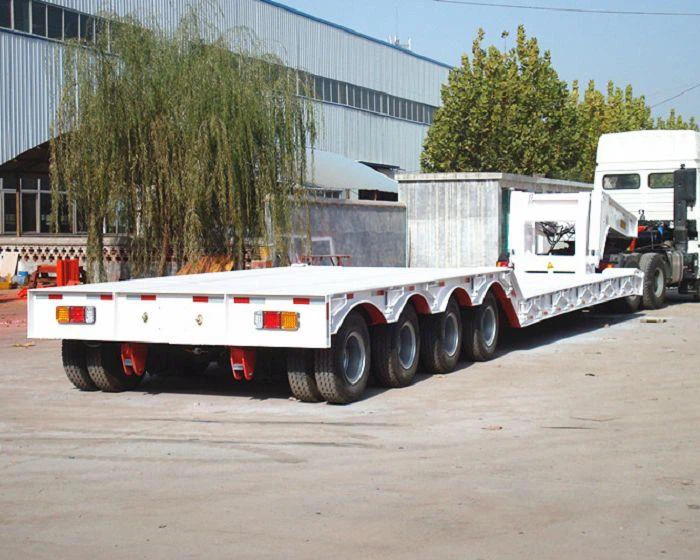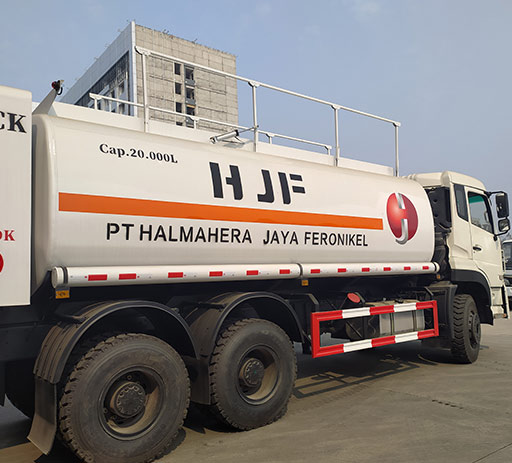How Many Gallons in a Fuel Truck? A Comprehensive Guide

Fuel trucks play a crucial role in transporting fuel to various locations, ensuring that businesses, homes, and vehicles have the energy they need to operate efficiently. Understanding how many gallons a fuel truck can carry is important for logistics, planning, and safety. In this article, we will explore the different capacities of fuel trucks based on their types, usage, and the regulations governing them. Whether you’re in the transportation industry, a fleet manager, or just curious about fuel truck capacities, this guide has you covered.
Understanding Fuel Truck Capacities
What Is a Fuel Truck?
A fuel truck is a specialized vehicle designed to transport liquid fuel, including diesel, gasoline, and other petroleum products. These trucks are equipped with tanks that can vary significantly in size based on their intended use. Common applications include delivering fuel to gas stations, refueling construction equipment, or providing heating oil to homes.
The Different Types of Fuel Trucks
Several types of fuel trucks are available, each designed for specific tasks and capacities. Understanding the different types will help clarify how many gallons each vehicle can hold.
1. Small Fuel Trucks
Small fuel trucks, often referred to as “mini fuel trucks,” typically hold between 500 to 1,000 gallons of fuel. They are commonly used for local deliveries and refueling smaller vehicles, such as fleets for construction companies or emergency services.
2. Medium-Sized Fuel Trucks
Medium-sized fuel trucks usually carry between 1,000 to 3,000 gallons. These trucks are often employed for commercial deliveries, supplying gas to filling stations or storage facilities. They strike a balance between capacity and maneuverability.
3. Large Fuel Trucks
Large fuel trucks can hold from 3,000 to 11,600 gallons, the maximum capacity allowed on highways in the United States for tankers. These trucks are designed for long-haul transport and typically deliver fuel to remote locations or large distribution centers.
Common Fuel Truck Capacities in Gallons
| Type of Fuel Truck | Capacity (Gallons) | Common Uses |
|---|---|---|
| Small Fuel Truck | 500 – 1,000 | Local deliveries, small fleets |
| Medium Fuel Truck | 1,000 – 3,000 | Commercial deliveries, gas stations |
| Large Fuel Truck | 3,000 – 11,600 | Long-haul transport, large distributions |
Factors Influencing Fuel Truck Capacity
Weight Restrictions
In the U.S., weight restrictions play a significant role in determining how much fuel a truck can carry. The Federal Highway Administration imposes limits on the gross vehicle weight (GVW), which includes the truck, its fuel load, and any additional cargo.
Tank Design and Configuration
The design and configuration of the tank also influence the capacity. Some tanks are designed to hold specific amounts of liquid based on safety considerations, including preventing sloshing during transport.
Regulatory Compliance

Fuel trucks must comply with regulations set forth by the Environmental Protection Agency (EPA) and Department of Transportation (DOT), which can affect their design and maximum capacities. This includes guidelines on hazardous material transport and spill prevention.
Practical Examples of Fuel Transport
Example 1: Fuel Delivery to a Construction Site
A construction company that operates multiple heavy-duty vehicles may require the services of a medium-sized fuel truck. Suppose the nearby fuel station is 15 miles away. A medium truck carrying 2,500 gallons can make regular deliveries to keep the construction equipment fully fueled, operating efficiently without excessive downtime.
Example 2: Fueling Remote Locations

For businesses operating in remote locations or rural areas, large fuel trucks become essential. A truck carrying 5,000 gallons can deliver to various clients requiring bulk fuel for heating or equipment without frequent trips.
Fuel Truck Comparison: Inspections and Maintenance
Regular Inspections
Regular inspections are vital, given the nature of the cargo. Fuel trucks must adhere to strict protocols to ensure that they do not leak or pose any safety hazards. Inspections typically include checking for leaks, ensuring that the pumps operate correctly, and that the overall structure is intact.
Routine Maintenance
To maintain their functionality and safety, fuel trucks undergo routine maintenance. This includes checking hoses, pumps, and valves as well as routine tank cleaning to prevent contamination of the fuel.
Operational Considerations When Choosing a Fuel Truck
Load Capacity vs. Range
When selecting a fuel truck, consider both load capacity and range. A larger truck with a higher capacity may be tempting, but it may also come with higher operational costs. You must ensure that the truck can reach all delivery points effectively.
Fuel Type and Regulations
Fuel trucks may also differ based on the type of fuel they are designed to carry. Different fuels have various regulations regarding the materials used in the tank and safety mechanisms. For example, trucks carrying gasoline may need to include additional vapor control systems that are unnecessary for diesel trucks.
Environmental Impact and Future of Fuel Transport
Emissions and Regulations
As the world increasingly becomes concerned about climate change, regulations surrounding fuel trucks are becoming stricter. These vehicles must comply with emission standards set by agencies to minimize environmental harm.
Technological Innovations
Technological advancements are providing new ways to operate fuel trucks more efficiently. This includes better route planning software to reduce fuel consumption and emissions during delivery operations, as well as alternative fuel options that are being explored for future trucks.
Frequently Asked Questions (FAQ)

How many gallons can a small fuel truck carry?
A small fuel truck typically carries between 500 to 1,000 gallons of fuel. They are ideal for localized deliveries.
What is the maximum capacity of a large fuel truck?
Large fuel trucks can carry between 3,000 to 11,600 gallons, with many hitting the upper limits for highway-legal transport.
Are there regulations affecting fuel truck capacity?
Yes, federal and state regulations limit the gross vehicle weight, which in turn influences the amount of fuel that can be transported.
What are the different uses for fuel trucks?
Fuel trucks are used for transporting fuel to gas stations, refueling construction equipment, supplying heating oil to homes, and delivering fuel to remote locations.
How often do fuel trucks need maintenance?
Fuel trucks should undergo regular inspections and maintenance, with checks typically happening every few weeks or after significant deliveries, depending on usage intensity.
What should I consider when selecting a fuel truck?
Consider the truck’s load capacity, range, type of fuel, compliance with regulations, and maintenance requirements when selecting a fuel truck for your needs.
